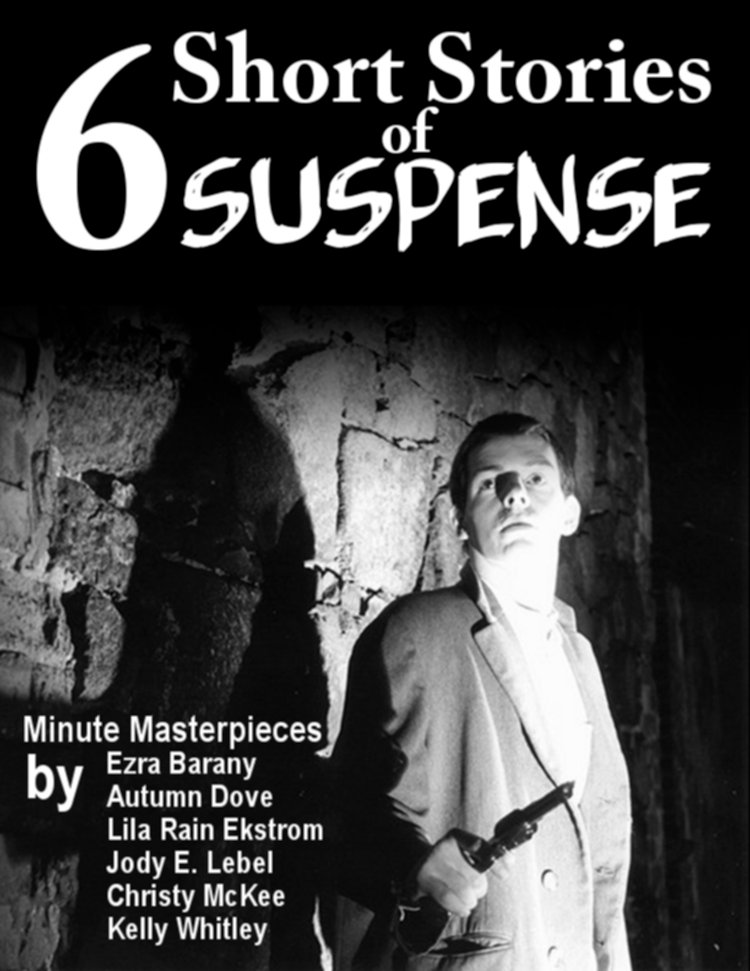Increase Your Book Sales with Anthology Submissions
 Many authors think getting their work published in an anthology is great for visibility. They’re right. But not for the reason they think.
Many authors think getting their work published in an anthology is great for visibility. They’re right. But not for the reason they think.
Often the author thinks, “Hey! My story’s published in an anthology! Now the publishers of the anthology are going to make me famous!”
The actual publishers of the anthology will probably not market the book as much as the author expects. Even if the publishers do market the anthology with tremendous gusto, that marketing isn’t what creates the majority of the book’s attention.
It’s the authors that do the most for giving the book its visibility.
Think of it this way. If you self-publish, you then tell all your friends and family about the book. But with an anthology, you now have all the contributing authors tell all their friends and all their families about the book. The amount of people who hear about the anthology and see your published name can be ten times as many!
Knowing how much visibility you can get from anthologies, the next thing to note is that you should already have at least one book for sale that’s in the same genre as your anthology-bound short story. Once you’ve published your first book, getting a short story published in an anthology is a great way to get discovered by your fans-to-be and make more sales of your published book. If you don’t have a book up for sale, that’s okay. Being published in anthologies does look good on your resumé.
How to know what’s a good anthology
1. One Genre – Make sure the anthology is composed of your genre or at least a single theme representing your story that only one market will enjoy. It makes no sense to publish your romance story in an anthology that contains horror, sci-fi, cookbook recipes, business articles, classified ads, and pictures of shoe laces. Who’d buy the damn thing?!
2. Picky Editor – It’s better to be in a compilation of works that are well-written than in an anthology of mostly poorly-written stories. If the call for stories says they’ll publish everyone’s works, don’t expect much visibility. Readers will likely give the anthology bad reviews and that will stop sales cold.
3. Retain Rights – You should only be giving the publisher permission to publish your work. There’s no reason why the publisher should get exclusive rights to your stories.
That said, if you reprint your story in tons of other anthologies, it may mean that fewer people will buy the original anthology, so I understand why a publisher would want you to wait a year before regaining reprint rights.
Nevertheless, I feel very uncomfortable at the idea of an artist losing rights to their work. Even if it’s only temporary. It just seems wrong. (And yet, I have still participated in KDP, losing the right to sell my work elsewhere for 90 days. Go figure.)
4. Don’t Pay – You should never have to pay to get your work in an anthology. If anything you should BE paid. It’s true that the publishers have to pay for formatting and cover design and print on demand fees, but if they pay all those fees, then they’re more invested in marketing the book to make back the expenses from sales. More sales means more readers discovering your work.
5. Don’t Expect to Be Paid – As I mentioned, the publisher does have to cover all the costs of publishing, so paying the authors means having to recoup the additional costs with book sales. The purpose for getting your book in an anthology shouldn’t be to get paid, it should be for getting your name out there, for people to see what your writing is like, and for readers to want to buy your other work.
The most ideal anthology
I teach courses on how to write suspense in any genre. My favorite part of the course is the final assignment : the authors need to write a short story using all they learned and, with their permission, I publish the stories in an anthology. I did this for 6 Short Stories of Suspense.
Here are some guidelines I go by:
1. Be With Great Writers – If you can, find out who the other authors are. They don’t have to be famous, but if they’ve published other material, check their reviews. You can tell how well the anthology will sell by how good the reviews of the other authors are. Anytime a reader gives an author rave reviews, chances are they’ll look for anything else the author has written. Such as a short story in an anthology. By being in the same anthology as that writer, your work may be discovered by that writer’s fans.
2. Be Edited – Imagine if the publisher offered suggestions on how to improve your writing before accepting it. There are a few reasons why that’s ideal. One, you get a free critique of your work. Two, the publisher is clearly motivated with making this anthology be a great read. A great read means more sales and more visibility. Three, the experience can help you improve your writing overall. Four, your story will be among great works of fiction.
In my course I have all the authors critique each other’s final story so that everyone is happy with the quality of the story submitted for the anthology. As the publisher, I get the veto vote if I still am not satisfied with the quality of the story.
3. Agree to Help Market – If all the authors agree to help market the anthology, it’s the best way of maximizing the publicity for your writing.
4. The Publisher Includes Her/His Own Story – By including a story of his own, the publisher likely wants to get as much visibility as possible for the anthology for his own writing career. That’s certainly the case with the 6 Short Stories of Suspense. My incentive was to increase my reach to readers by being a part of an anthology of great writers.
5. The Anthology is Affordable – I go back and forth between the value of whether an anthology, a book whose purpose is to get as much visibility as possible, should be free or 99c. The problem with being 99c is that readers have to pay for it and won’t be as quick to download it. The problem with being free is that while many people will download it, few will actually read it. At least those who spent 99c will be likely to read it because they invested in it.
I decided to set the price of 6 Short Stories of Suspense at 99c to not only guarantee the buyers will read it, but also to provide at least some return for the costs of my time to do the cover design and book layout. The point of all this is that if the book is $30.00, who’s going to buy it? The anthology should be affordable.
6. Links! – Inside the anthology, there should be URLs in the bios of the different authors. If the anthology is an ebook on Amazon, the links can connect to the author’s other book(s) on Amazon. If the ebook is on Barnes & Noble, the links can connect to the author’s other book(s) on Barnes & Noble. Ultimately, it’s great to make it easy for readers who discover they like your writing to go straight to your other books and buy them.
So how do you find a good anthology to submit your story?
One trick I’ve discovered is to go to Google and type the words “submissions anthology [your genre].” So if your genre is romance, type “submissions anthology romance.” If you want to find more anthologies, go to Twitter and type in the search bar “submissions [your genre].” The results will include contests and regular publishing companies seeking full novels to publish, but among the search results are requests for submissions towards anthologies. Browse through the anthologies and if they have the components I’ve listed for being a good anthology to sign up with, send them your brilliant work!
***
 Book marketing mentor, Ezra Barany is the author of the award-winning bestseller, The Torah Codes. Contact Ezra now to begin the conversation on how he can help you. You can connect with Ezra via Facebook, Twitter, contact him through this blog, or by email: EZRA at THETORAHCODES dot COM.
Book marketing mentor, Ezra Barany is the author of the award-winning bestseller, The Torah Codes. Contact Ezra now to begin the conversation on how he can help you. You can connect with Ezra via Facebook, Twitter, contact him through this blog, or by email: EZRA at THETORAHCODES dot COM.







Is it possible to have a textbook that’s an anthology? How about a little money for a star chapter section?